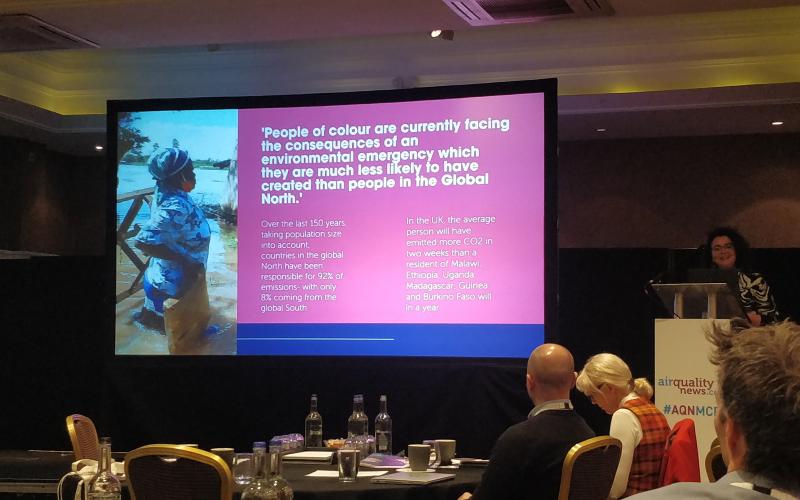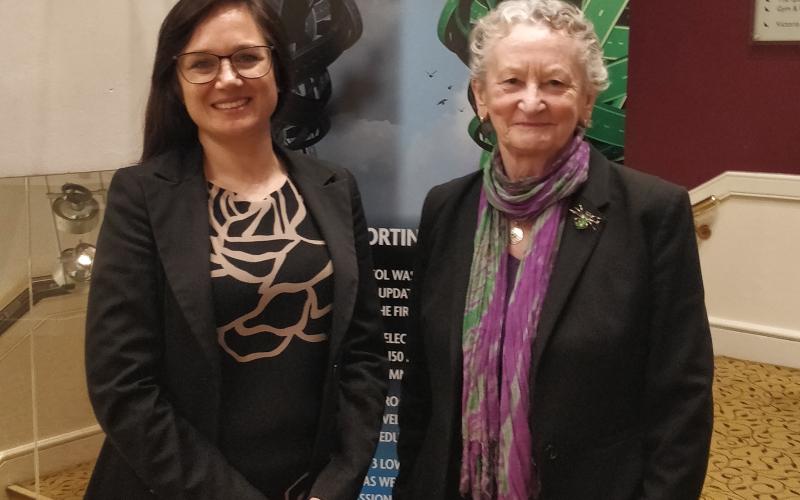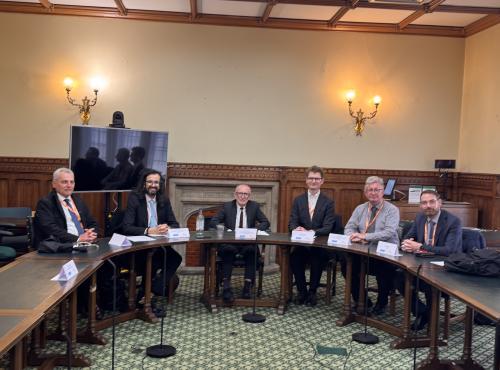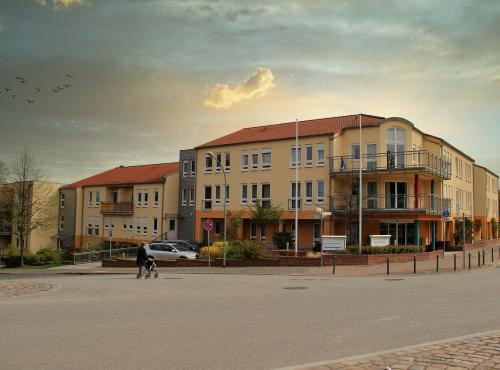Northern Air Quality Conference
On 23 March, the ‘Northern Air Quality Conference’ took place in Manchester, hosted by Air Quality News. The event brought together policymakers, charity workers, local authority representatives, academics, innovators, and air quality professionals to discuss the challenges, opportunities, and solutions to improve air quality. Beverley Nielsen, an Associate Professor at Birmingham City University, and independent Councillor in Malvern Hills, expertly chaired a range of informative and thought-provoking presentations and discussions throughout the day.
Andy Hickford, Senior Project Manager Sustainable Energy & Air Quality at Leeds City Council
Andy affirmed that tackling air pollution is a priority for Leeds City Council. Under a Clean Air Zone (CAZ), legal compliance with national air quality standards was achieved in Leeds. Leeds Council has developed the Air Quality Strategy 2021-2030, which includes actions to tackle air pollution from transport, home, industry and agriculture, as well as working with health and care sectors to ensure the most vulnerable residents understand how best to protect themselves. Andy detailed the progress already made as part of the Connecting Leeds programme.
Andy also highlighted the various sources from which pollution can originate. Communication from local authorities on how the public can protect themselves from the health impacts of air pollution and raising awareness of the pollution caused by boilers, stoves and fireplaces is an important step. Given people spend 80-90% of their time indoors, indoor pollution is an area requiring urgent attention.
Rosie McEachan, Born in Bradford
Born in Bradford is an internationally recognised research programme which has been tracking the well-being of over 40,000 ‘Bradfordians’ from birth, with the oldest cohort now reaching adolescence. Findings showed that babies born in high levels of air pollution had a greater tendency for lower birth weight and smaller head circumference.
Rosie emphasised the importance of a collaborative approach when tackling air pollution, particularly listening to views and concerns of seldom heard communities. Following consultations involving communities, a CAZ was implemented in 2022, which includes mitigations to ensure vulnerable communities were not disproportionately affected. Passenger cars were exempt from charges and grants were available for local businesses and taxis to contribute to the cost of upgrading or replacing vehicles to CAZ standards. Residents and businesses with non-compliant vehicles could also apply for exemptions.
Panel discussion
A panel discussion involving Douglas Booker, Lancaster University, Nick Ruxton-Boyle, Vortex, Dr Sanja Potgieter, Manchester Metropolitan University, and Jason Torrance, UK100, explored the challenges of progressing air quality improvements. The discussion included many questions from the floor and touched on themes such as:
- The challenges facing local authorities and rural areas due to the lack of a national government strategy and supports
- The urgent need for the Air Quality Strategy to be updated
- The need for technical advice to reach and align with WHO air quality limits
- The need for long term funding to allow local authorities to plan appropriately for their areas
- Better communications on the benefits of clean air projects
- Technology will only take us so far, there is a need for behaviour change, and efforts to reduce energy demand should be promoted
- The potential benefits of an air pollution literacy toolkit, enabling people to recognise their air pollution footprint
Jacob Roberts, Senior Policy & Strategy Consultant at Cenex
Jacob’s presentation focussed on the opportunities and challenges of developing local EV charging infrastructure networks. Survey results show there is an appetite to switch to EVs. However, EV infrastructure is struggling to keep with up demand. This especially pressing as the Government has mandated Zero Emission Vehicles (ZEV) by 2035.
The opportunities that an effective EV charging infrastructure network could unlock include the reduction of vehicle emissions, better health from improved air quality, job creation, as well as EVs being able to help reduce demand on local electricity grids with Vehicle to Grid technology.
However, challenges remain, such as high electricity costs, existing benefits being weighted towards more affluent groups and planning obstacles associated with charging infrastructure. It is also important to note that while EVs eliminate tail pipe emissions, there is still particulate matter emanating from tyre and brake ware.
Nannette Yousef, Policy Officer at the Runnymede Trust
Nannette gave a highly engaging presentation on the critical issue of air pollution and racial injustice. Citing some chilling research, Nannette showed that, across the UK, BME people are disproportionately exposed to air pollution and more susceptible to the resultant health effects. One example included the Borough of Newham, where 71% of the population are Black, Asian or an ethnic minority. The average annual concentration of PM2.5 (particulate matter 2.5) not only exceeds WHO guidance, but is 29% greater than average for England, where just 15% of the population is from a Black, Asian, or ethnic minority.
Baroness Jenny Jones
Baroness Jenny Jones was well known by the attendees, thanks to her tireless efforts to enhance the environment and the quality of the air we breathe. Baroness Jones has served as a Councillor for Southwark London Borough Council, a Member of the London Assembly, Deputy mayor of London, and more recently became the first Green Party peer in the House of Lords in 2019.
Baroness Jones’ presentation was full of both humour and stark reality, as she brought the processes and procedures of the House of Lords to life for the audience. Citing some of the difficulties she has faced in relation to her Clean Air (Human Rights) Bill, which would introduce a right to breathe clean air, Baroness Jones asked attendees to reach out to their local MPs and urge them to support the fight against air pollution.
The Clean Air (Human Rights) Bill is also known as Ella’s Law, after Ella Adoo-Kissi-Debrah, the nine-year-old girl who tragically died in 2013 and became the first person in the UK to have air pollution listed as a cause of death. On 15 February 2023, ten years will have passed since Ella’s death.
Having passed through the House of Lords, Ella’s Law is now due for second reading in the House of Commons on 15 December 2023. An Early Day Motion (EDM), which is designed to raise parliamentary support for the Bill, has impressively gained 63 signatures from supportive MPs from across the political spectrum.
Professor Alastair Lewis, University of York
Professor of Atmospheric Chemistry at the University of York, Alastair Lewis, brought the conference to a close by highlighting the multi-scale problem of air quality internationally, nationally, and locally. In relation to PM2.5, Prof. Lewis showed that because pollution can come from natural sources, other countries, and from emission sources in the UK, roughly half of PM2.5 pollution can be impacted by UK action. While this highlights the importance of action at an international level, Prof. Lewis also reinforced the importance of national and local action, as even a relatively small reduction in PM2.5 can have significant health benefits.
Prof. Lewis also acknowledged the growing significance of indoor air quality. On the issue of domestic heating, Prof Lewis noted the issues with solid fuel burning in both rural and urban locations, as well as space heating; with natural gas being a substantial fraction of urban nitrogen oxides (NOx) emissions.
Looking to the future, achieving net zero could have a tremendously positive effect on human health but only if delivered with air quality in mind.







